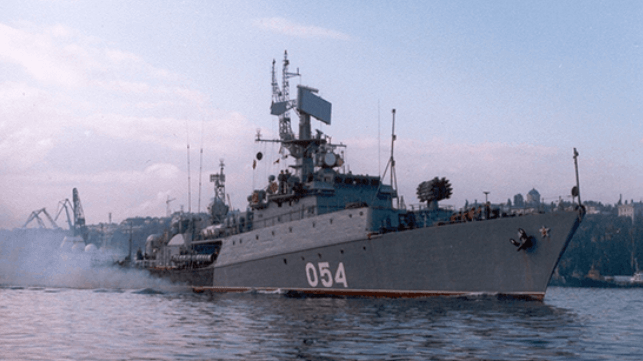Joint War Committee Lists the Black Sea Waters of Ukraine and Russia

The Joint War Committee, the marine insurance advisory board that assesses and designates regions of heightened risk, has added sections of the northern Black Sea to its master list of areas with an elevated likelihood of war, piracy or terrorism. The move comes amidst heightened tensions caused by Russian naval drills in waters near Crimea.
The designation requires the shipowner to notify their hull insurance underwriter in advance of a voyage to a covered area. The decision whether to insure the voyage or not, and the pricing of the coverage, remains a matter for the insurer to discuss with the owner.
The designation puts the Russian and Ukrainian waters of the Black Sea and the Sea of Azov in the same notification category as the Gulf of Guinea, the Persian Gulf, Yemen, Syria and Iran. It is the only listed region in Europe.
"Whilst the current assessment is that there is armed balance, it was decided to issue [an advisory] as a precautionary measure," the committee said in a brief statement. "There have been no maritime incidents but the possibility of a miscalculation is clear so the JWC have enabled notification of voyages to underwriters."

that matters most
Get the latest maritime news delivered to your inbox daily.
According to Pravda Ukraine, a Russian naval drill announcement has effectively shut off access to the key seaport of Odessa. The Russian exercise exclusion zone extends almost all the way up to the edge of the Dneipr Bank, an area of shoals where merchant ships do not ordinarily navigate due to the risk of grounding. The Russian Navy has left a 1,000-meter corridor between the edge of the exercise zone and the edge of the shoal - enough room to maintain the argument that the exercise is not a blockade.
Chartering consultant Oleg Solodukhov told Pravda that the tensions are already costing Ukraine's exporters an extra $2-3 per tonne for shipping, and he expects that to rise to $5-7 per tonne if the situation worsens. If shipowners decide to avoid the area altogether and wait for tensions to pass, the economic losses for Ukraine could quickly mount; data from VesselsValue already shows that expected traffic to Ukraine's dry and wet bulk terminals is set to decline sharply for the month of February.
